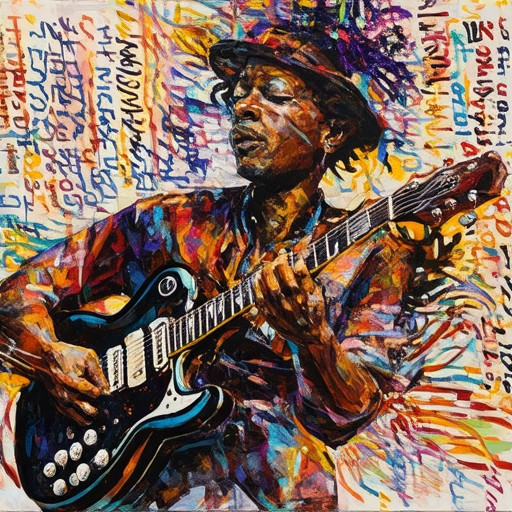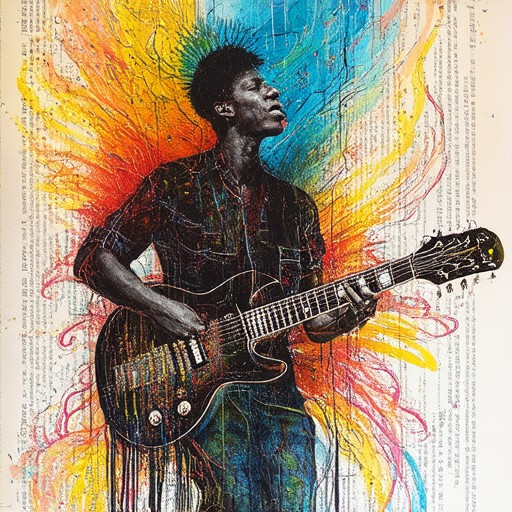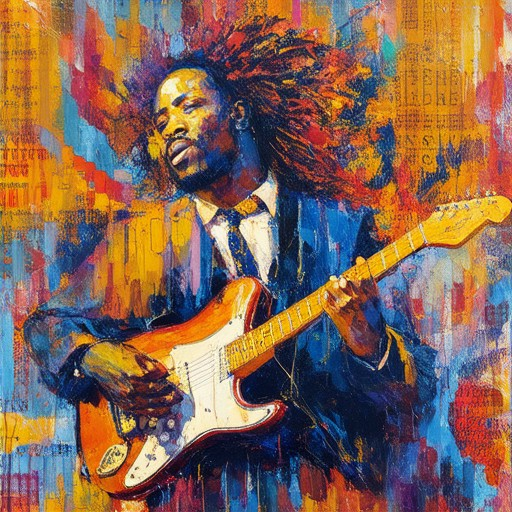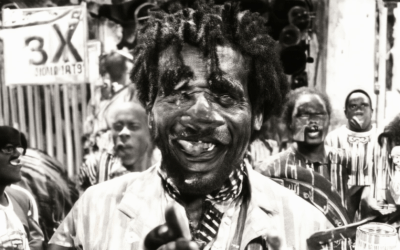Soul music has long served as a powerful medium for expressing emotions, storytelling, and advocating for social change. From its roots in African American culture, soul music has evolved into a dynamic art form that often mirrors the struggles and aspirations of communities. In this exploration, we delve into the profound connection between soul music and activism, examining how this genre has historically been a vessel for social commentary, resistance, and cultural expression. By uncovering the themes, influences, and legacy of soul music as a tool for activism, we aim to shed light on its enduring impact and relevance in fostering social justice and awareness.
Key Takeaways: Igniting Change Through Soul Music’s Activist Themes
- Powerful Catalyst for Social Movements: Soul music serves as a catalyst for social change, uniting people and inspiring collective action.
- Protest Anthems: Iconic tracks like Marvin Gaye’s “What’s Going On” highlight music’s role in voicing systemic issues and empowering activism.
- Public Art Transformation: Through murals and installations, soul music challenges societal norms and sparks conversations on social justice.
- Diverse Collaboration: Artists bridging cultural gaps use their platforms to amplify underrepresented voices, fostering inclusivity and unity.
- Lyrics Drive Change: Thought-provoking lyrics in soul music demand policy reforms and promote awareness, urging listeners to take action.
- Inspiration and Empowerment: Uplifting soul tracks inspire resilience, offering hope and fostering strength during challenging times.
- Cultural Preservation: By supporting traditional forms, soul music maintains cultural heritage and facilitates meaningful exchanges.
- Global Solidarity: Crossing borders, soul music’s stories resonate worldwide, fostering international support for shared causes.
- Educational Tool: Music teaches young generations about history and empathy, nurturing future activists.
- Resistance Against Oppression: Soul music challenges authority and advocates for freedom, inspiring rebellion and resistance.
- Community Building: Through shared experiences, soul music strengthens communities, enabling collective advocacy.
- Why Music is a Powerful Form of Protest: Its ability to unify, evoke emotion, and subtly convey messages makes music a potent tool for protest.
- Most Common Activism Form: While music drives change, demonstrations and protests remain a prominent and impactful method of activism.

Themes of Soul Music
- Spiritual Influence: Soul music deeply draws from gospel traditions, incorporating spiritual lyrics and themes that reflect faith and resilience.
- Rhythmic Complexity: The genre is characterized by its syncopated rhythms, influenced by African drumming and polyrhythms, creating a distinctive groove.
- Emotional Depth: Soul music often delves into profound, personal emotions, offering a cathartic experience for listeners through its heartfelt delivery.
- Social and Political Commentary: Many soul songs address societal issues, serving as a reflection of the African American experience and struggles for equality.
- Influence from Other Genres: Soul music absorbs elements from jazz, blues, and Latin music, creating a rich tapestry of sound that sets it apart from other genres.
- Modern Evolution: While rooted in tradition, soul music continues to adapt, blending with contemporary styles like hip-hop, pop, and R&B to remain relevant in today’s music scene.
What Are Some Common Themes In Protest Music?
Protest music often revolves around a few recurring themes that reflect societal concerns and aspirations. Here are some prominent ones:
- Social Justice : Many protest songs tackle issues like racial inequality, gender discrimination, and economic disparity. Artists often use music to amplify voices marginalized by systemic issues.
- Resistance Against Oppression : Protest music frequently addresses political dissent, challenging authority and advocating for freedom of speech, democratic values, and human rights.
- Civil Rights and Equality : Historical struggles for civil rights, such as those in the American South during the Civil Rights Movement, have inspired countless protest songs that celebrate resilience and demand equality.
- Economic Inequality : Songs often critique wealth disparity and corporate greed, calling for fair wages, labor rights, and economic reform.
- War and Peace : Protest music frequently denounces war, advocating for peace and understanding. Artists may express opposition to military conflicts and the loss of life involved.
- Environmental Concerns : Modern protest music increasingly addresses climate change, environmental degradation, and the need for sustainable practices.
- Solidarity and Unity : Protest songs often emphasize collective action and unity, bringing people together around shared causes.
These themes continue to resonate across generations, serving as powerful tools for expression and social change.

Themes in Soul Music During the Civil Rights Era
Soul music during the Civil Rights era reflected the social and emotional struggles of the time, often blending personal experiences with broader societal issues. Here are the predominant themes:
- Social Protest : Many soul songs addressed racial inequality and the fight for civil rights, serving as powerful anthems for the movement. Artists like Sam Cooke and Curtis Mayfield used their music to advocate for justice and equality.
- Personal Empowerment : The era’s soul music often emphasized self-reliance and confidence in the face of adversity, resonating with the broader theme of empowerment.
- Spiritual Influence : Soul music drew heavily on gospel traditions, incorporating spiritual themes and messages of hope and redemption.
- Love and Relationships : Themes of romance and heartache were prevalent, with artists expressing deep emotions about love and loss.
- Cultural Heritage : The music frequently celebrated African American culture, drawing from blues and jazz influences to create a rich, rootsy sound.
- Resistance and Resilience : Soul music became a source of comfort and inspiration for communities facing systemic oppression, embodying the spirit of resistance.
These themes were interwoven into the fabric of soul music, making it a profound reflection of the social and cultural landscape of its time.

How Can Music Be a Form of Activism?
Music has long been a powerful tool for expression, storytelling, and inspiring change. It can serve as a catalyst for social movements, fostering unity, hope, and resistance against oppression. Here are some ways music can function as a form of activism:
- Protest Songs : One of the most direct forms of musical activism is through protest songs. These tracks often address systemic issues like inequality, injustice, and political corruption, serving as anthems for movements and empowering listeners to take action.
- Public Art and Murals : Music-inspired public art, such as murals and installations, can transform urban spaces into vibrant canvases that reflect social justice themes. These works often challenge societal norms and spark conversations about equality and human rights.
- Collaborative Projects : Artists from diverse backgrounds coming together to create music that celebrates diversity and challenges stereotypes can foster understanding and unity. Such collaborations amplify voices that might otherwise go unheard.
- Advocacy Through Lyrics : Lyrics in songs can directly call for change, whether it’s demanding policy reforms, promoting environmental awareness, or advocating for gender equality. Musicians often use their platforms to shed light on important issues and encourage their audiences to get involved.
- Empowerment and Inspiration : Music has the unique ability to uplift spirits and instill hope during challenging times. Artists can use their craft to inspire resilience, unity, and collective action, helping people navigate difficult social or political landscapes.
- Cultural Preservation : Music plays a crucial role in preserving and celebrating cultural heritage. By supporting artists who keep traditional forms alive, we help maintain the richness of our shared history and promote cultural exchange.
- Global Solidarity : Music transcends borders, allowing artists from different cultures to collaborate and share their stories. This global collaboration can foster cross-cultural understanding and solidarity, particularly in addressing issues that affect humanity as a whole.
- Educational Tools : Music can be used as an educational tool to teach children about history, social justice, and empathy. Through songs that tell stories of struggle and triumph, young people can develop a deeper understanding of the world around them.
- Rebellion and Resistance : In many cases, music has served as a medium for rebellion and resistance against oppressive systems. Artists often use their music to challenge authority and advocate for freedom, inspiring others to join the fight for justice.
- Community Building : Music brings people together, creating spaces for dialogue and connection. Communities united through music can work collectively toward social change, amplifying their collective voice and influence.
By leveraging the power of music, activists and artists can create meaningful change, inspire movements, and leave a lasting impact on society. Whether through protest songs, collaborative projects, or educational initiatives, music remains a powerful force for activism and social transformation.
Tiger Funk is committed to celebrating the rich history and cultural significance of funk, soul, and jazz fusion music. Explore our comprehensive resources and discover how these genres have shaped modern music and continue to inspire change.
Why is Music a Powerful Form of Protest?
Music has long served as a powerful medium for expressing protest and advocating for social change. Its ability to unite people, evoke emotions, and spread messages makes it an influential tool in movements for justice and equality.
- Unity and Empowerment : Music fosters a sense of community and solidarity among protesters. Songs like “We Shall Overcome” during the civil rights movement became anthems that inspired hope and resilience, helping individuals feel part of a larger movement.
- Emotional Expression : Music can convey emotions that words alone often cannot. Protest songs frequently blend anger, frustration, and hope into powerful narratives, resonating deeply with listeners and fueling collective action.
- Subtle Messaging : Many protest songs avoid overt political statements, instead using metaphors or coded language to convey messages. This allows artists to critique systems and express dissent without direct confrontation, making music a safer medium for some.
- Cathartic Release : Singing or listening to protest music can be therapeutic, releasing pent-up emotions and frustrations. This shared experience helps individuals feel less isolated and more motivated to act.
- Historical Impact : From punk rock in the 1970s to contemporary hip-hop, music has played a role in shaping social movements. It provides a platform for marginalized voices and amplifies their messages, contributing to broader societal change.
- Cross-Boundary Appeal : Music transcends language barriers, making it accessible to a diverse audience. This universal appeal helps protests gain international support, expanding their reach and impact.
- Strategic Influence : Effective protest music often employs repetition and memorable melodies to reinforce its message. Anthemic songs become symbols of a movement, encouraging continued participation and advocacy.
In essence, music’s unique combination of emotional power, communal bonds, and expressive flexibility makes it an enduring and potent form of protest, capable of driving meaningful social change.

What is the Most Common Form of Activism?
Activism encompasses various methods of social change aimed at addressing issues such as inequality, environmental degradation, and human rights violations. Among the many forms of activism, one of the most common and visible is demonstrations and protests .
Common Forms of Activism
- Demonstrations and Protests: Gatherings of individuals advocating for a cause, often involving marches, rallies, or public assemblies. These events draw attention to specific issues and can pressure decision-makers to take action.
- Advocacy Campaigns: Organized efforts to raise awareness about particular issues through education, media outreach, and community engagement. These campaigns often aim to influence policy or public opinion.
- Boycotts and Sanctions: Actions taken to withdraw support or oppose certain entities or policies, often in solidarity with a cause. Boycotts can target products, services, or institutions to effect change.
- Civil Disobedience: Acts of nonviolent resistance against laws or policies perceived as unjust. This form of activism often involves blocking roads, occupying buildings, or other symbolic gestures.
- Lobbying and Advocacy: Efforts to influence legislation or political decisions through direct communication with policymakers. This can involve testifying at hearings or meeting with elected officials.
- Art and Culture-Based Activism: Using art, music, film, and other creative mediums to convey messages about social issues. This approach can be particularly effective in reaching broader audiences.
Digital Activism
In recent years, digital platforms have become a powerful tool for activism. Social media, online petitions, and digital campaigns allow activists to reach global audiences quickly and efficiently. Platforms like Tiger Funk and others provide spaces for organizing, sharing information, and mobilizing support.
Conclusion
While there are numerous forms of activism, demonstrations and protests remain among the most visible and impactful. By bringing people together and amplifying their voices, these actions can lead to meaningful change and inspire larger movements for justice and equality.





0 Comments